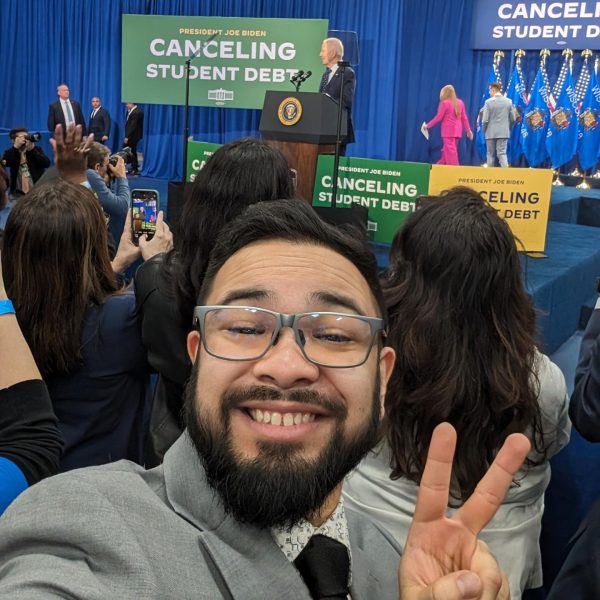Exploring the changing landscape of immigration with evangelicals
January 30, 2018
I wouldn’t call this a change of heart, but instead, more of a push towards acceptance.
Despite a historic emphasis on the separation of church and state, this delineation is rarely maintained in modern government.
In 2006 Sam Rodriguez, president of the National Hispanic Christian Leadership Conference, was asked by the Bush administration to persuade white Evangelical Christians to support a deal allowing undocumented immigrants to stay in the country. Their mindset needed changing, considering the fact that, at the time, many of them viewed immigrants as a threat to American culture. Additionally, without evangelical support, the deal for undocumented immigrants could not be passed.
While a change in widespread evangelical attitudes has occurred, their views still hold barriers. Literal barriers. According to a 2015 study done by LifeWay Research, 60 percent of evangelicals support a path to citizenship for undocumented immigrants, but 90% support and prioritive increased border security.
Recently, President Trump has made intolerable remarks regarding immigrants from Haiti and African countries, eliciting a backlash from a handful of evangelical supporters. While the overwhelming amount of evangelicals voted for Trump initially, their support has significantly declined due to his inability to differentiate between what strengthens and what weakens the country as a whole.
Since religion often plays a large role in politics, it is imperative that such a large group has begun to understand the necessity of equality for all who reside in this country, and that they can help persuade the president to move in the right direction, as well.
Galen Carey, Vice President of Government Relations for the National Association of Evangelicals, has said that the push for change “has to do with coming to realize the important role immigrants are playing in our churches.” This idea was introduced by Rodriguez, who portrayed the attack on immigrants as an issue for the church as a whole. He reminded his audience that Jesus says to welcome the stranger and, even more importantly, that almost every Christian group in the U.S depends heavily on Hispanics and other immigrant communities for membership. The evangelical churches are shrinking, and their only hope is to start accepting, understanding, and welcoming others.
We’re not there yet. This change is a bit more personal for evangelicals as a whole because they see the immediate benefits of this change. However, the desire for reform is present and, with this change in mindset, a future where an emphasis on universal respect for humanity, regardless of personal interest, is central may not be too far off.










